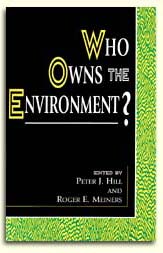[…] Isles, Scandinavia, and Canada than they were to the fishermen who owned them. Since commercial fishermen primarily want to make a living, they would fish for other species just as readily as for salmon. Or, if the jobs were there, they would in most cases gladly do other things to earn living for themselves […]





